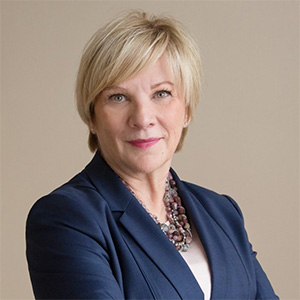Health access committee reform concerns advocates
Ruby Pratka, Local Journalism Initiative reporter
ruby@qctonline.com
A regulation changing the composition of the Provincial Access Committee (PAC), the review body which oversees programs developed by regional health authorities to ensure access to English-language health services, was quietly adopted in late December.
English-speaking Quebecers have the legal right to receive health care in the official language of their choice. To ensure that that right exists in practice, regional access committees (RACs), composed of community stakeholders, work with health authorities to develop regional access plans to ensure that English speakers who require certain health services can either access them in their region – with the support of an interpreter if needed – or travel to access them. The PAC reviews the regional access plans before submitting them to the health minister for final approval by Cabinet.
The regulation, first proposed in June, will change the composition and functioning of the 11-member PAC. Instead of a selection committee designated by the Quebec Community Groups Network (QCGN) and the Community Health and Social Services Network (CHSSN), members will now be chosen by a selection committee appointed by the health minister, following a new regional composition template with increased representation for Indigenous communities and for the Laval and Montérégie regions. “We’re not against regional and Indigenous representation; we’re against centralization,” said Sylvia Martin-Laforge, director general of the QCGN.
The previous committee has been dissolved, and the access programs it approved late last year are currently awaiting final ministerial approval. Current access programs pre-date the 2015 consolidation of the health system. The potential for a delay in the development or approval of new access programs while members of the new committee are chosen is concerning for English-speaking community advocates. A petition with 4,500 signatures was tabled in the National Assembly to oppose the regulatory change.
“If there are questions [in the interim], no one representing the English-speaking community will be authorized to answer,” said QCGN president Marlene Jennings. “At a time when the English-speaking community requires knowledgeable representation … this new regulation delivers a committee whose membership, functioning and communication will more than ever be under government control.”
“It’s difficult to see the effect of this reform on the care provided to individuals, but it doesn’t make it easier,” Martin-Laforge added. “People need to know where they’re going to go.” She also raised concerns that the committee would not be able to share its concerns about the effect of Bill 96, the government’s controversial language legislation, on the health sector.
Marie-Hélène Harvey, a spokesperson for the Ministry of Health and Social Services, said the call for applications for members of the new committee was already open, and the new committee was expected to hold its first meeting in April. She said approval of the access plans was expected in February or March.
Richard Walling is the president of the Jeffery Hale-Saint Brigid’s advisory committee and a past president of the PAC. He is hoping to encourage applications from people “who have an understanding of the English committee and its needs, who are connected and can be the voice of the community, evaluate and provide recommendations on access plans.”
The volunteer committee members “have a role to play in protecting the designated [bilingual] status of some institutions, ensur[ing] access plans and advising the minister in terms of whether access plans meet the needs of the community,” Walling said.

